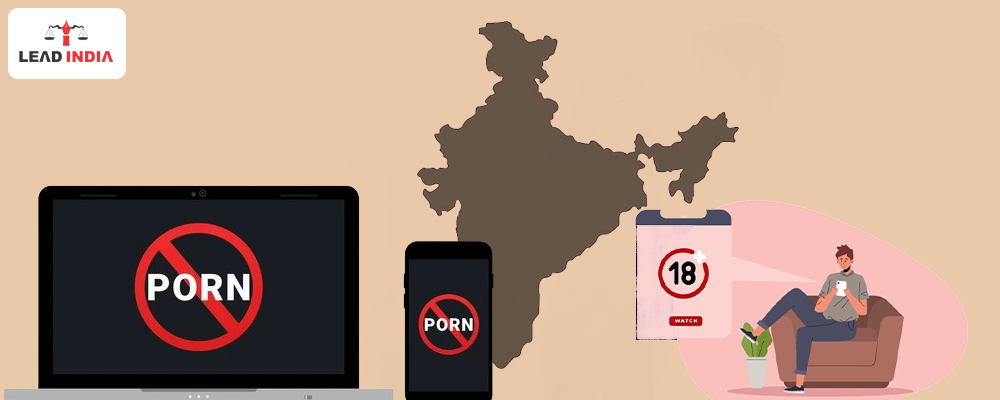Porn, a topic which is mostly avoided by Indian people to discuss in public even in private as well, but a representation of sexual behavior via various methods like images, pictures, videos etc.
Private Viewing vs. Public Sharing: Know the Difference
- You CAN Watch Porn Privately: If you’re an adult (18+), watching porn in your room, on your personal device, without involving anyone else non-consensually, is not a crime.
- But You CANNOT Share or Show It to Others: Sending it to someone without their consent? Forwarding it in a group? Showing it in public? That crosses into criminal territory — even if the content is legal.
What the Constitution Says: Personal Liberty Comes First
Right to Life and Personal Liberty of Indian Constitution is governed by Article 21. The Supreme Court in the case of 2015 stated that porn in private may fall under this Article.
Need A Legal Advice
The internet is not a lawyer and neither are you. Talk to a real lawyer about your legal issue

This means your right to consume adult content in private has constitutional support, as long as it does not violate any other laws.
The Legal Landscape: Which Laws Apply to Porn in India?
1. Information Technology (IT) Act, 2000
- Section 66E: Prohibits capturing or transmitting private body parts without consent.
Punishable with up to 3 years imprisonment or ₹2 lakh fine or both. - Section 67: Bans publishing or transmitting obscene or sexually explicit content (text, images, videos, stories). Punishable with up to 5 years of imprisonment and ₹10 lakh fine.
2. The Bharatiya Nyaya Sanhita (BNS), 2023,
- Sections 294 and 295 of BNS : Make it illegal to sell, distribute, or publicly exhibit obscene material.
- Section 78 of BNS : Criminalizes stalking, including collecting images from a woman’s social media without her consent.
- Section 356 of BNS : Prohibits defamation, including any content meant to harm someone’s reputation.
3. POCSO Act, 2012
- Section 14(1): Using a child (under 18) in any pornographic content is punishable by up to 5 years in prison and a fine.
- Section 15: Storing child pornography with the intention to share is punishable by up to 3 years in prison or fine or both.
- Section 42: If an act is covered under both BNS and POCSO, the harsher punishment will apply.
For Example –
Ramesh, a 28-year-old techie in Chennai, once forwarded an adult video in a WhatsApp group without much thought. One member of the group, a colleague, reported him to HR. He was fired and later summoned by the police under Section 67 of the IT Act. He didn’t even create the video but forwarding it was enough.
Note : You don’t have to be the creator. Even sharing is a legal offence.
What’s Legal vs. What’s Illegal ?
Legal
- Watching porn privately (18+)
- Saving adult content on personal devices
Illegal
- Sharing or forwarding porn
- Sending sexually explicit content without consent
- Watching, storing, or distributing child pornography
- Public display or circulation of adult content
- Forcing someone to view pornographic material
Final Thoughts: Don’t Be Afraid to Know the Law
India does not criminalize private, consensual adult content consumption. But it takes a strict approach toward sharing, harassment, coercion, and especially child pornography.
If you’re an adult and watch porn privately without violating others’ rights you are not committing a crime. But be aware: the moment content is forwarded, published, or shown without consent the law comes into effect.
If you’re unsure about anything related to cybercrime, harassment, or digital safety, talk to a lawyer. Lead India’s legal experts offer free consultations and can guide you through any legal concern.
One can talk to lawyer from Lead India for any kind of legal support. In India, free legal advice online can be obtained at Lead India. Along with receiving free legal advice online, one can also ask questions to the experts online free through Lead India.
FAQs
1. Can I share porn videos with friends or on social media?
No, sharing or forwarding porn without consent is illegal, even if the content is legal.
2. What happens if I’m caught forwarding adult content?
You have to face legal action under IT Act which includes penalties like imprisonment or fines.
3. Is child pornography illegal in India?
Yes, it’s strictly illegal. Even sharing, viewing is also a crime.
4. Can I be arrested for watching porn on my phone?
No, if you’re watching in private then it’s not illegal.





 Talk to a Lawyer
Talk to a Lawyer